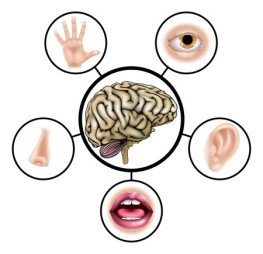Top 5 Disabilities Caused by Traumatic Brain Injury
30March2017
30March2017

Traumatic brain injury (TBI) causes injuries ranging from mild and temporary to severe and permanent. Some injuries affect cognitive ability, mental health and communication while others affect sensory and motor skills. The damage caused by TBI can be absolutely devastating. Approximately 85,000 new people begin suffering from long-term disabilities related to TBI every year and more than 5.3 million Americans live with disabilities caused by TBI.
If you or a loved one is suffering from a disability caused by TBI then you likely have extensive medical and other expenses related to your injury. One of the ways to cover these expenses is through the damages awarded in a personal injury claim. Contact a personal injury lawyer today to discuss your rights.
Traumatic Brain Injury can cause a range of disabilities.
Almost 50 percent of victims of TBI experience post-concussion syndrome (PCS) within a few days of the injury. The condition may last weeks up to several months depending on severity. Symptoms are wide ranging and they include: dizziness, memory problems, difficulty concentrating, headache, sleep disturbance, anxiety, agitation, sadness and apathy. While the condition is temporary it is severe enough that patients cannot work or carry out normal activities until the symptoms are managed. Typical treatment is threefold: medication, occupational therapy and psychotherapy.
Cognitive problems related to TBI happen because of one serious injury or a succession of mild injuries such as those experienced by football players. The main issue facing victims is memory loss; specifically, losing the ability to remember certain past events and difficulty remembering new things. Other symptoms commonly experienced for six months or longer after the injury are foggy brain and the inability to organize schedules, make appropriate judgments, reason logically or solve problems.
Sensory problems affect the five senses: sight, hearing, touch, taste and smell. The most common sense affected by TBI is sight. Specifically, the patient can still see but they begin to have trouble recognizing objects or people because they are not able to process signals from their eyes. As a result, TBI patients cannot drive a car or operate complex machinery until these symptoms subside.
Victims may also experience other disabilities relating to the senses including:
Unfortunately, there are no known remedies for these irritating symptoms.
TBI patients often experience issues with language and communication although the symptoms range in type and severity. In some cases the symptoms are fairly minor such as when the patient begins to have issues understanding body language or noticing other non-verbal cues. In more serious cases, the patient has trouble understanding or creating spoken or written words. Some victims experience disruptions in speech including speaking gibberish or slurring.
Many people with TBI exhibit emotional and behavioral problems. It is common for victims to experience depression, anxiety, apathy, irritability, mood swings, sleep problems confusion and frustration. In some cases victims become aggressive, violent and impulsive. While many TBI patients can improve over time through psychotherapy and medication, some will become permanently child-like, unable to develop and grow emotionally.
The Seattle personal injury attorneys at Morrow Kidman Tinker Macey-Cushman, PLLC have years of experience representing families harmed by medical malpractice. We seek justice for patients who have been harmed by preventable medical errors including birth injuries, hospital-acquired infections and wrongful death in Seattle and across Washington State. There are no fees or expenses to file a personal injury case as we only receive payment if we recover damages on your behalf. Do not delay; personal injury claims come with a Statute of Limitations, which means they must be filed within a certain time frame of the injury.
Call us now at (206) 752-4366 or contact us online to schedule a free consultation with one of our compassionate, experienced attorneys.